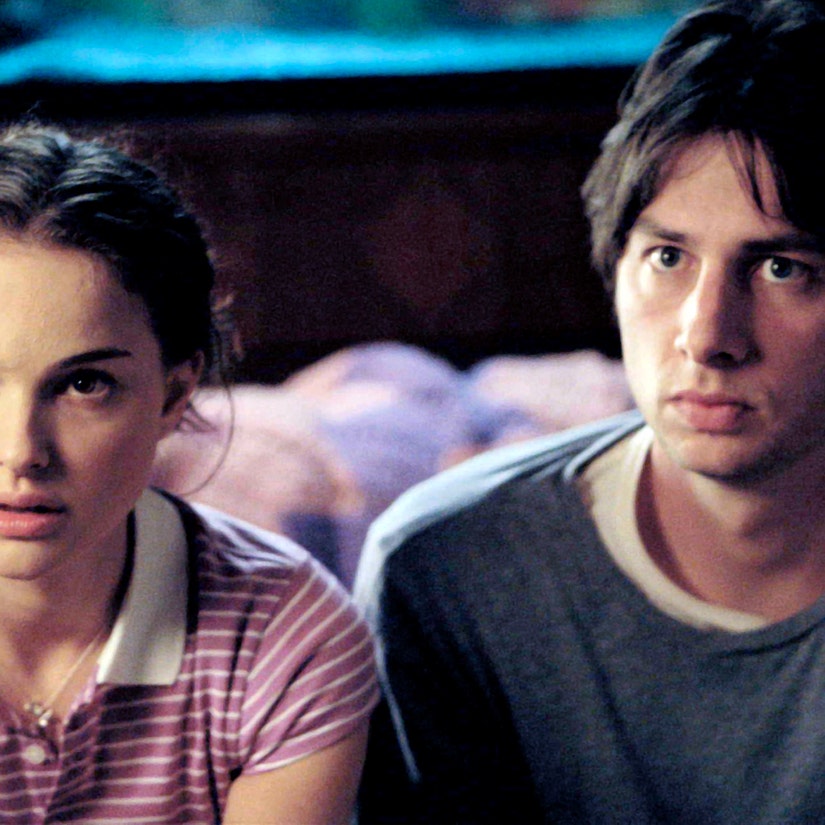
"I was a very depressed young man who had this fantasy of a dream girl coming along and saving me from myself," he said of the criticism surrounding Natalie Portman's character, who was the first to be known as a Manic Pixie Dream Girl.
Zach Braff is sharing his thoughts on the criticism of his 2004 film, "Garden State."
In an interview with The Independent, the actor and filmmaker reacted to how the public's opinion of the film has shifted in the nearly 20 years since its release -- as many took issue with Natalie Portman's character, in particular.
Braff, 47, wrote, directed and starred in "Garden State," which was inspired from his own life. The film centers on Andrew Largeman (Braff), a part-time actor who returns to his hometown in New Jersey for his mother's funeral after a decade away. While at home, he confronts his past, and also meets a woman named Sam (Portman), who is a compulsive liar, and Largeman's love interest.
Portman's character was the first to be known as a Manic Pixie Dream Girl.
The Manic Pixie Dream Girl is exactly like it sounds, a storytelling device that according to Nathan Rabin, who coined the term, is a female character that "exists solely in the fevered imaginations of sensitive writer-directors to teach broodingly soulful young men to embrace life and its infinite mysteries and adventures." The MPDG does not have an arc of their own, they exist solely to serve the story of the male characters.
While speaking with The Independent, Braff said of Portman's Sam, "I was just copying Diane Keaton in 'Annie Hall' and Ruth Gordon in 'Harold and Maude.' Those were my two favorite movies growing up, and I was kind of taking those two female protagonists and melding them into Natalie Portman."
"Of course I've heard and respect the criticism, but… I was a very depressed young man who had this fantasy of a dream girl coming along and saving me from myself," he continued. "And so I wrote that character."
The "Scrubs" alum went on to share that he's "known [his] whole life" that he suffered from depression, noting that he also had obsessive-compulsive disorder (OCD) when he was a kid.
"I knew I was battling something. That's what writing 'Garden State' was about. I wasn't as extreme as Andy, but I was certainly battling my own demons," Braff explained. "As I was writing it, I was hoping I could survive what became known as the quarter-life crisis, and depression, and fantasizing that the perfect woman would come along and rescue me."
Looking back, the "Wish I Were Here" star said he's grateful he has the opportunity to make films and "can't really dwell on" the criticism, even if it may be hurtful.
"Anyone who's ever got a bad grade on an essay from a teacher can relate -- just imagine it was out there in public, you know?" Braff told the outlet. "No one said being a creative person was easy, but you have to be vulnerable and authentically yourself. Otherwise, what's the point?"
However, he said that over the years he's gotten thicker skin.
"Your skin gets tougher," Braff said. "When you're young, you're very vulnerable. But I've been doing this for 20 years now. You get used to it."
, title:Full Feed | Toofab.com, url:https://ift.tt/LxUkBA6, author:, feed_url: https://toofab.com/, }


No comments:
Post a Comment